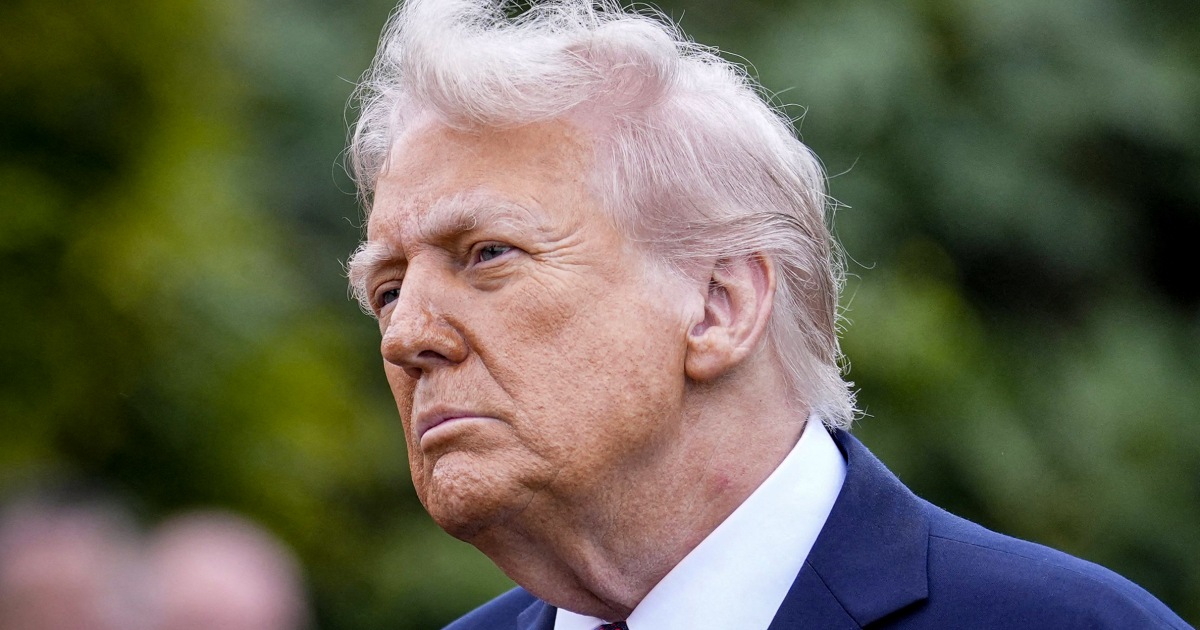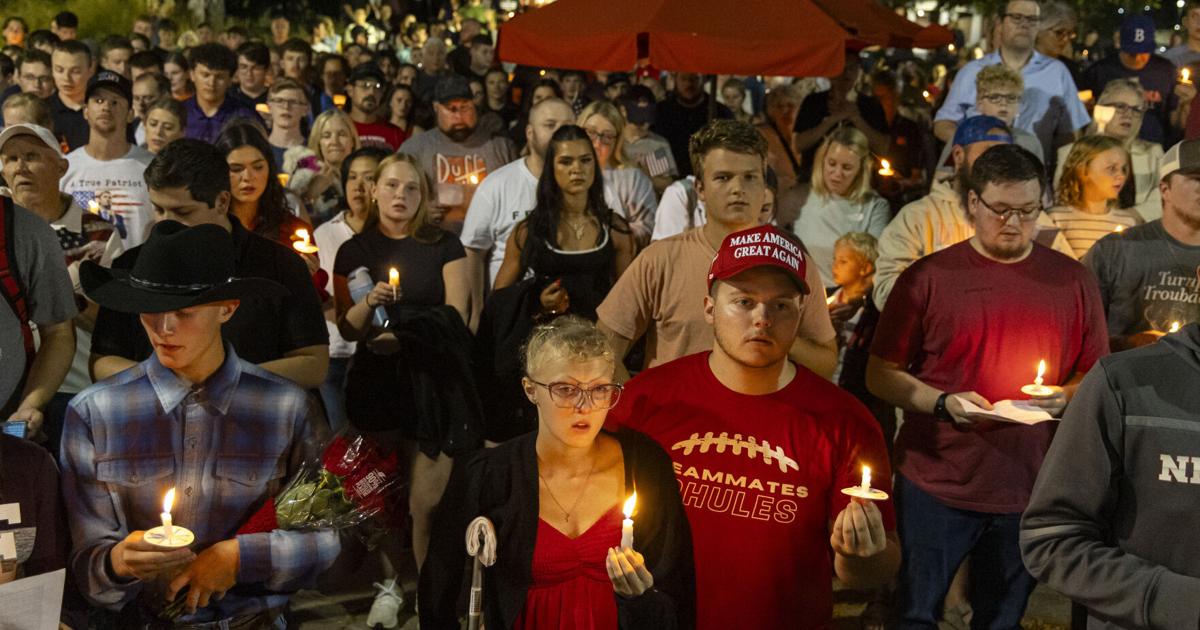Will the White House Target Left-Wing Groups This Month?

Published: 2025-09-18 01:37:56 | Category: policy GNEWS Search
The recent assassination of conservative activist Charlie Kirk has ignited a wave of proposed actions from the Trump administration targeting left-wing groups accused of inciting political violence. The administration is considering investigations into the tax-exempt status of various liberal organisations, amidst wider discussions about combating what officials describe as a "domestic terror network." This report will explore the implications of these developments, the legal challenges involved, and the broader context of political violence in the United States.
Last updated: 10 October 2023 (BST)
Key Takeaways
- The Trump administration is planning investigations into left-wing groups following the assassination of Charlie Kirk.
- Federal law prohibits the designation of domestic groups as "terrorist organisations," which complicates the proposed measures.
- Concerns about free speech rights have been raised by both conservatives and liberals regarding the government's response.
- The administration's actions stem from a perceived existential threat felt by conservatives.
- Legal complexities may hinder the administration's ability to act swiftly against alleged offenders.
The Context of Political Violence in the U.S.
Political violence in the United States has escalated in recent years, with events such as the Capitol riots on 6 January 2021 illustrating the deep divisions within the country. The assassination of Charlie Kirk, a prominent conservative figure, has intensified discussions about the role of various organisations in fostering political violence. While the exact motives behind Kirk's murder remain under investigation, the administration's reaction highlights a broader concern about the safety of political figures and the actions of radical groups.
Investigations and Legal Framework
The administration's proposal to investigate left-wing groups stems from allegations that they are connected to violent incidents. Stephen Miller, a senior White House official, has referred to these groups as part of a "vast domestic terror network." However, it is important to note that under federal law, the president and vice president cannot unilaterally order investigations into organisations' tax status. This limitation raises questions about the feasibility of the proposed actions.
Proposed Investigations into Tax-Exempt Status
One of the key actions being considered is the investigation of the tax-exempt status of liberal organisations. Tax-exempt status is granted to organisations that operate for charitable, educational, or other exempt purposes. If the administration can establish that these groups are involved in promoting violence, they may face legal challenges that could strip them of this status.
Such investigations are fraught with legal complexities. The Internal Revenue Service (IRS) is responsible for overseeing tax-exempt organisations, and any action taken must adhere to established legal procedures. Furthermore, the implications of such investigations could extend beyond the targeted organisations, potentially affecting free speech and charitable giving across the political spectrum.
The Role of Philanthropy in Political Funding
Much of the administration's focus is on groups funded by high-profile philanthropists, particularly George Soros, whose Open Society Foundations have been labelled as problematic by some conservatives. Vice President JD Vance has indicated that the administration will examine the funding mechanisms of organisations like the Ford Foundation in this context.
Many conservative critics argue that these philanthropic entities contribute to a culture of violence through their financial support of progressive causes. However, critics of the administration's approach warn that targeting these organisations could backfire, leading to a chilling effect on free speech and political expression.
The Political Landscape Following Kirk's Assassination
The aftermath of Kirk's assassination has caused significant unrest within the conservative community. There is a palpable sense of urgency and grief, as noted by Rachel Bovard from the Conservative Partnership Institute. This emotional response has driven calls for action against perceived threats from the left.
As discussions unfold, some conservative figures are advocating for extreme measures, including the designation of groups like ANTIFA as "terrorist organisations." Such designations would grant the government broader powers to act against these groups, but would also require navigating complex legal frameworks that currently limit domestic designations.
Concerns Over Free Speech
As the administration considers its response, there is growing concern over the implications for free speech rights. Many on both sides of the political aisle worry that aggressive actions against left-wing groups could infringe upon fundamental democratic principles. The balance between ensuring public safety and upholding free speech is a delicate one, and any misstep could have far-reaching consequences.
Vice President Vance attempted to address these concerns during a recent speech, emphasising that he would fight for the rights of all individuals to express their opinions, regardless of political affiliation. This statement reflects an awareness of the potential backlash against measures that could be perceived as oppressive or censorious.
What Happens Next?
The timeline for the proposed actions remains uncertain. While there are indications that the administration may move quickly, the complexities of federal law and the need for careful planning mean that immediate results are unlikely. The investigations are still in the early stages, and further developments will depend on the ongoing investigation into Kirk's assassination.
As federal authorities work to untangle the web of political violence, it remains crucial for them to consider the implications of their actions. An overzealous approach could alienate moderates and exacerbate existing divisions within the country.
Conclusion
The proposed actions by the Trump administration in response to the assassination of Charlie Kirk represent a significant moment in the ongoing struggle over political violence in the United States. While the desire for safety and accountability is understandable, the legal and ethical implications of targeting left-wing groups must be carefully weighed. As the nation grapples with these challenges, the need for constructive dialogue and mutual understanding remains paramount.
How will the Trump administration balance the need for security with the principles of free speech and democratic freedoms? The answer to this question will shape the political landscape in the months to come. #PoliticalViolence #FreeSpeech #TrumpAdministration
FAQs
What triggered the investigation into left-wing groups by the Trump administration?
The investigation was triggered by the assassination of conservative activist Charlie Kirk, which has led to accusations that left-wing groups incite political violence.
Can the Trump administration legally designate domestic groups as terrorist organisations?
No, federal law currently prohibits the designation of domestic groups as terrorist organisations; this label is generally reserved for foreign entities.
What are the implications of investigating the tax-exempt status of organisations?
Investigating tax-exempt status could lead to significant legal challenges for targeted organisations and may impact free speech and charitable giving across the political spectrum.
How are conservatives reacting to the assassination of Charlie Kirk?
Many conservatives express a sense of grief and urgency, calling for swift action against perceived threats from the left and advocating for measures to restrict funding to liberal groups.
What concerns have been raised regarding free speech in this context?
There are concerns that aggressive actions against left-wing groups may infringe upon free speech rights and lead to a chilling effect on political expression.



